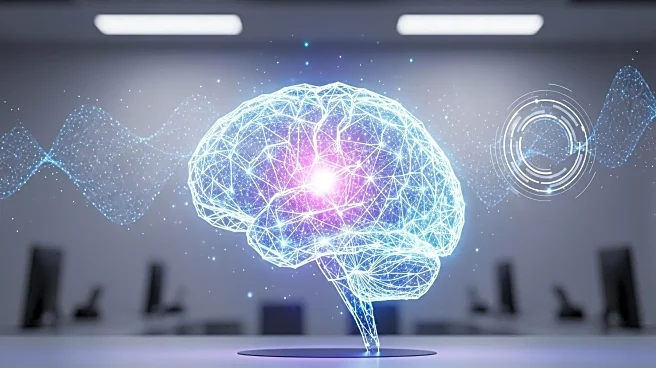What's Happening?
Artificial intelligence is increasingly being integrated into public sector operations to improve service delivery and efficiency. Public agencies are adopting AI tools to streamline routine tasks, allowing employees to focus on higher-priority issues. This shift is aimed at creating augmented employment environments where AI supports human work rather than replacing it. The focus is on training and upskilling the workforce to effectively use AI tools, ensuring that public employees and the communities they serve can thrive in an AI-augmented future. Upcoming events like the GovAI Summit will address the need for expanded AI education and training across the public sector.
Why It's Important?
The integration of AI in the public sector is significant as it promises to enhance government responsiveness and accessibility. By automating routine tasks, AI allows public employees to concentrate on more critical roles, potentially leading to improved service delivery. This transformation could result in a more efficient government, capable of meeting increasing demands with limited resources. However, the success of AI integration depends heavily on the workforce's ability to adapt and utilize these technologies effectively. Training and education are crucial to overcoming challenges related to AI adoption, ensuring ethical and responsible use of AI tools.
What's Next?
The GovAI Summit scheduled for November 5-6 will focus on expanding AI education and training in the public sector. Key stakeholders, including government officials and training specialists, will discuss strategies for integrating AI into public service operations. The summit aims to address the current gaps in AI education and propose solutions for effective workforce training. As AI continues to evolve, public agencies will need to develop policies and training programs to ensure their employees are equipped to handle AI technologies responsibly.
Beyond the Headlines
The ethical and responsible use of AI in the public sector is a critical consideration. As AI tools become more prevalent, there is a need for clear policies and guidelines to govern their use. Training programs must emphasize ethical considerations and ensure that employees understand the implications of AI technologies. Additionally, the cultural shift towards AI-augmented work environments may require changes in organizational structures and workflows, presenting both challenges and opportunities for public agencies.











